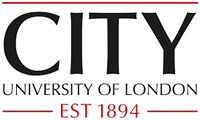Dr C Suttle, Dr M Conway
No more applications being accepted
Funded PhD Project (Students Worldwide)
About the Project
People with dyslexia and other forms of reading difficulty often experience discomfort when reading. It has been claimed that colour helps to reduce these difficulties, increasing reading speed and alleviating discomfort. To this end, colour is provided by teachers in the form of printed material on coloured paper and by optometrists in the form of transparent sheets to lay over reading material, as well as tints on spectacle lenses. While these aids are widely prescribed and used around the world by people with reading difficulty, their effectiveness has not been thoroughly tested. In this PhD research, you will systematically review the literature in this area, and conduct the first randomised double-masked controlled study on the effectiveness of different forms of chromatic reading aids to reduce reading difficulty in children and adults. During pilot work, you will develop and validate optimal measures of reading ability and comfort for use in children and adults, and you will optimise approaches for masking by measuring just noticeable differences between colours presented before and after ‘wash-out’ periods. During the main study, reading comfort, ability and speed will be measured in people from 7 to 70 years of age with a range of chromatic reading aids, including control comparisons. You will present and discuss the research at international conferences and publish your findings in peer-reviewed journals widely read by optometrists and vision scientists with an interest in this area. The findings of this research will provide important evidence for eye care practitioners and for educators, to guide recommendations and advice on the use of colour as a reading aid.
Recommended Skills:
1.Qualification in optometry, orthoptics or ophthalmology
2.Psychology qualification
3. Undergraduate level understanding of statistics
Funding Notes
A doctoral studentship will provide:
• An annual bursary (£16,000 in 2016/17)
• All fees for PhD student registration paid for UK and EU students. Applications are welcome from overseas applicants but the applicant must make appropriate arrangements to cover the difference between the overseas and UK tuition fee
• Research costs up to £1000 over the three years

 Continue with Facebook
Continue with Facebook

